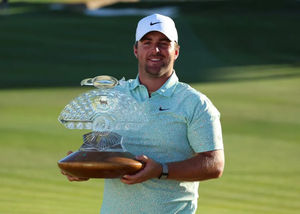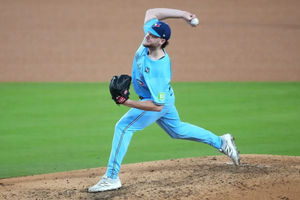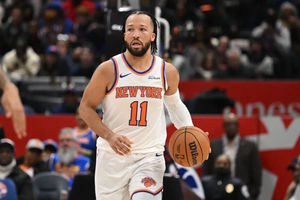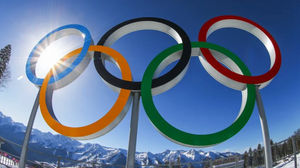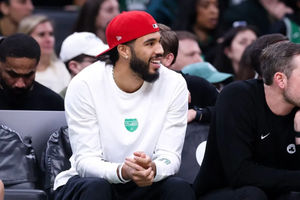What Did Joe Paterno Know About Jerry Sandusky In 1998? Esquire Unearths Curious New Details From Paterno's Papers

In the final interview of his life, the infamous "rape and a man" interview, Joe Paterno told Sally Jenkins of the Washington Post that he knew nothing about a 1998 police investigation into Jerry Sandusky, who, at the time, was still Penn State's defensive coordinator. (That investigation was launched four years before Mike McQueary peered into the showers at the Lasch Football Building.) "You know," Paterno told Jenkins, "it wasn't like it was something everybody in the building knew about. Nobody knew about it."
Paterno was asking us to believe that, in a small, insular town over which he presided like some sort of secular pope, he had no inkling of a major police investigation into his top lieutenant concerning a possible sex crime against a child. This seemed incredible, given all that we had learned over the years about Paterno and Penn State. Short of any solid evidence to the contrary, however, we had to take him at his word.
Comes now Esquire and writer Luke Dittrich, treading very, very carefully in a story about Paterno's final days but unmistakably casting doubt on the coach's version of events in 1998. (The story won't be online for a couple of weeks, but the new issue will be on newsstands soon.)
First, here's Dittrich's summary of the backstory. The dates are important, as we will see in a bit:
According to the grand-jury indictment, the first time Jerry Sandusky was investigated on suspicions of sexual abuse was back in 1998. On May 13 and 19 of that year, detectives from the Penn State and municipal police departments hid in the home of the mother of an alleged victim and listened in on conversations she had with Sandusky, conversations in which Sandusky admitted that his genitals might have touched her son, and that he felt terrible about it, saying "I wish I were dead." Then, on June 1, they interviewed Sandusky in person. Shortly afterward, for unclear reasons, the case was dropped.
To put together his story, Dittrich combed through papers housed at the Paterno Library on Penn State's campus. His research turned up much about Paterno's schedule at that time—his commitments, his cancellations. And a pattern emerges:
You will find, if you dig into his archives from 1998, that he was a very busy man—he wrote in one letter that he had "committed all my free time to" and was "really stretched" by the ongoing fundraising campaign. You will find that he was a very reliable man as well. When he planned to do something, he would do it. In fact, if you look at his agenda from 1998, you'll see that he almost always kept to his schedule, and that his only cancellations fall within a very narrow window of time.
The first cancellation is on May 15, two days after police listen in on Sandusky's half-confession to the mother of a young boy. That evening, Paterno cuts short a fundraising trip to Valley Forge, then cancels a four-day-long personal vacation he had been planning to take from May 16 to 19, to his summer home in Avalon, New Jersey. He resumes his scheduled fundraising trips in June, about a week after the investigation against Sandusky is dropped. He doesn't miss any more events for the remainder of the year.
The following season, Sandusky abruptly and unexpectedly announces his retirement.
Something happened that summer, but, as Dittrich writes, "The files raise questions but provide no answers." In March, some anonymous hearsay published in drew similar inferences about Paterno. The magazine spoke with a longtime friend of Tim Curley, the on-leave Penn State athletic director now charged with perjury in connection with the Sandusky case. Here's the pertinent passage:
Many Paterno watchers, citing how he knew everything that went on in his program, find that claim of ignorance laughable. Jerry Sandusky retired abruptly in 1999, a year after the investigation, at age 55, at the height of his powers as a ballyhooed football mind. Supposedly he wanted to devote more energy to his Second Mile charity. Apparently he'd been told by Paterno that he would never be his successor as head coach. But just why Paterno told him that is an open question. When Sandusky left, the friend who's been close to Tim Curley for more than 40 years told the A.D. he was surprised the coach was gone."
"It's for a very good reason," Curley told him—but he wouldn't elaborate. (I attempted to talk to Curley, but he hasn't spoken to the media since the scandal broke.)
This section was disputed by Wick Sollers, a lawyer for the Paternos, in a letter that was published in the story's comments that can be found in a cache version. Sollers called the magazine's "claim" based on the word of "anonymous 'Paterno watchers'" "baseless," adding that there "has not been one iota of evidence from any source to suggest that Coach Paterno was ever informed about that investigation." Sollers is correct, based on what we know. But as the Esquire story demonstrates, there's still a lot that we don't know.
[ Esquire; photo via Getty]
Related
The NBA’s Tanking Problem Is Getting Worse — Not Better
NBA Picks Tonight: Three Best Bets Before the All-Star Break
The Biggest Question Facing Every 2026 MLB Contender
Best NBA Betting Picks for Wednesday Feb. 11th Slate
- Early Super Bowl LXI Odds Favor Seahawks, Sleeper Betting Picks & More
- Sunday Feb 8th NBA Picks: Three Best Bets Today
- Super Bowl Betting Preview: Seahawks vs. Patriots Breakdown & Pick
- The Most Fun Super Bowl Prop Bets You Can Make This Year
- Super Bowl 60 Prop Bets: 10 Best Bets for Patriots vs. Seahawks
- UFC Fight Night at the Apex Best Betting Picks and Predictions
- NBA Betting Picks for Friday Feb. 6: Post-Deadline Predictions







